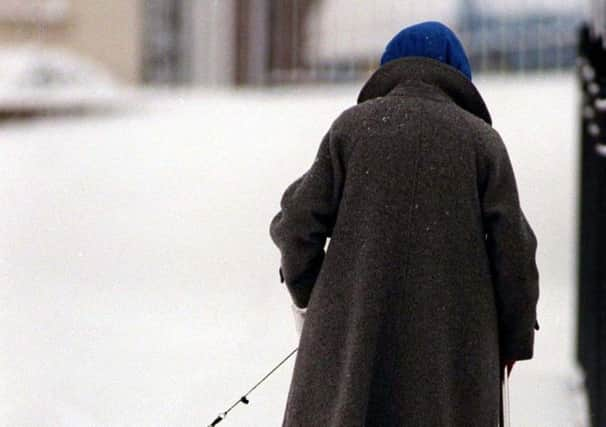Helping older people prevent debilitating falls in winter


For older people, losing muscle mass can make the difference between dependence and independence.
As part of this year’s Stay Well This Winter campaign, health professionals are urging older people and those who care for them to be aware of how falls can happen and to take steps to prevent this.
Advertisement
Hide AdAdvertisement
Hide AdDr Carolyn Harper, director of Public Health at the Public Health Agency said: “A person over 80 who spends a week in hospital will experience the equivalent of 10% loss of strength and for some, this could mean the difference between being able to climb stairs, get in and out of bed or even stand up from the toilet. It also takes twice as long for older people who have suffered injury as a result of falling to regain their mobility.


‘‘That’s why we are recommending older people take some preventative action including regular exercise.’’
Joyce McKee, programme manager (Adult Services), Health and Social Care Board added: “We also know that an older person who loses mobility can lose confidence, become depressed, more socially isolated and their health and wellbeing can rapidly decline.”
The Stay Well campaign, jointly led by the Health and Social Care Board and the Public Health Agency, encourages people, especially those at most risk of a preventable hospital admission, to take actions that will help them stay well during winter.
Advertisement
Hide AdAdvertisement
Hide AdThis includes reducing falls in older people, getting a flu vaccination, keeping homes warm and getting advice from a pharmacist as appropriate at the first sign of illness.


It also incorporates key advice around common winter illnesses and the range of services available to help people make the most appropriate choices for their healthcare needs.
Here are some tips for older people who may be concerned or worried about falling:
Speak Up
-Speak to your doctor about fall risks, prevention and assessment. Tell your doctor if you have fallen, or if you’re afraid you might fall, or if you feel unsteady.
Advertisement
Hide AdAdvertisement
Hide Ad-Ask your doctor or community pharmacist to review your medication and discuss any side effects like feeling dizzy or sleepy.
-Check with your doctor or pharmacist if taking vitamin D supplements for improved bone, muscle, and nerve health is right for you.
Keep Moving
Activities that strengthen your legs and help your balance can help prevent falls.
The Chartered Society of Physiotherapists has put together a short video of six easy strength and balance exercises which can be done in the home daily https://vimeo.com/234691208/7a79ab7be1
Check Your Eyes
Advertisement
Hide AdAdvertisement
Hide Ad-Make sure you get your eyes checked once a year and update your glasses if they are needed.
-Make Your Home Safe. Most falls happen at home
-Keep floors clutter free
-Remove small rugs or tape down or secure them
-Add grab bars in the bathroom
-Install handrails and lights on staircases
-Make sure your home has lots of light
-Ask your local council for a free home hazard assessment. A home safety officer can look over your house and offer advice and information on how to prevent a fall
Information about Stay Well can be found at www.nidirect.gov.uk/campaigns/stay-well